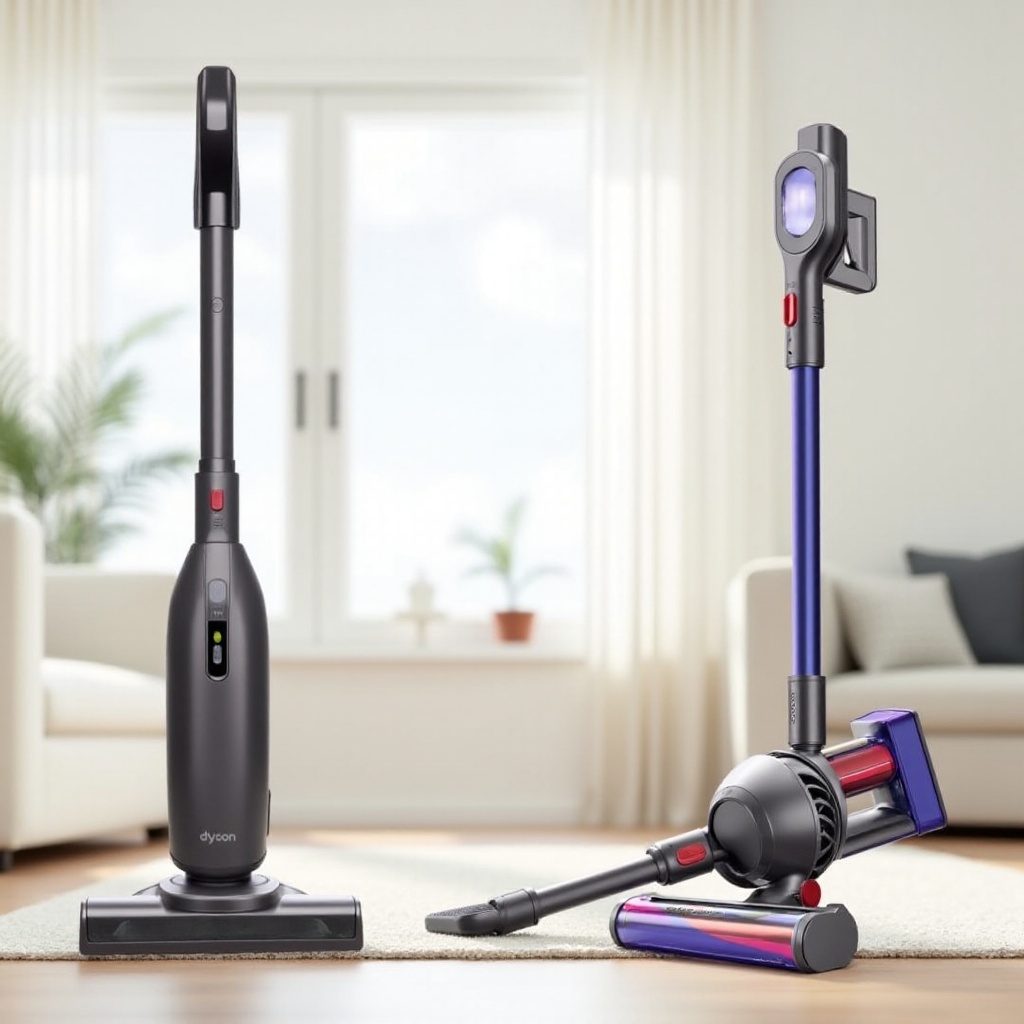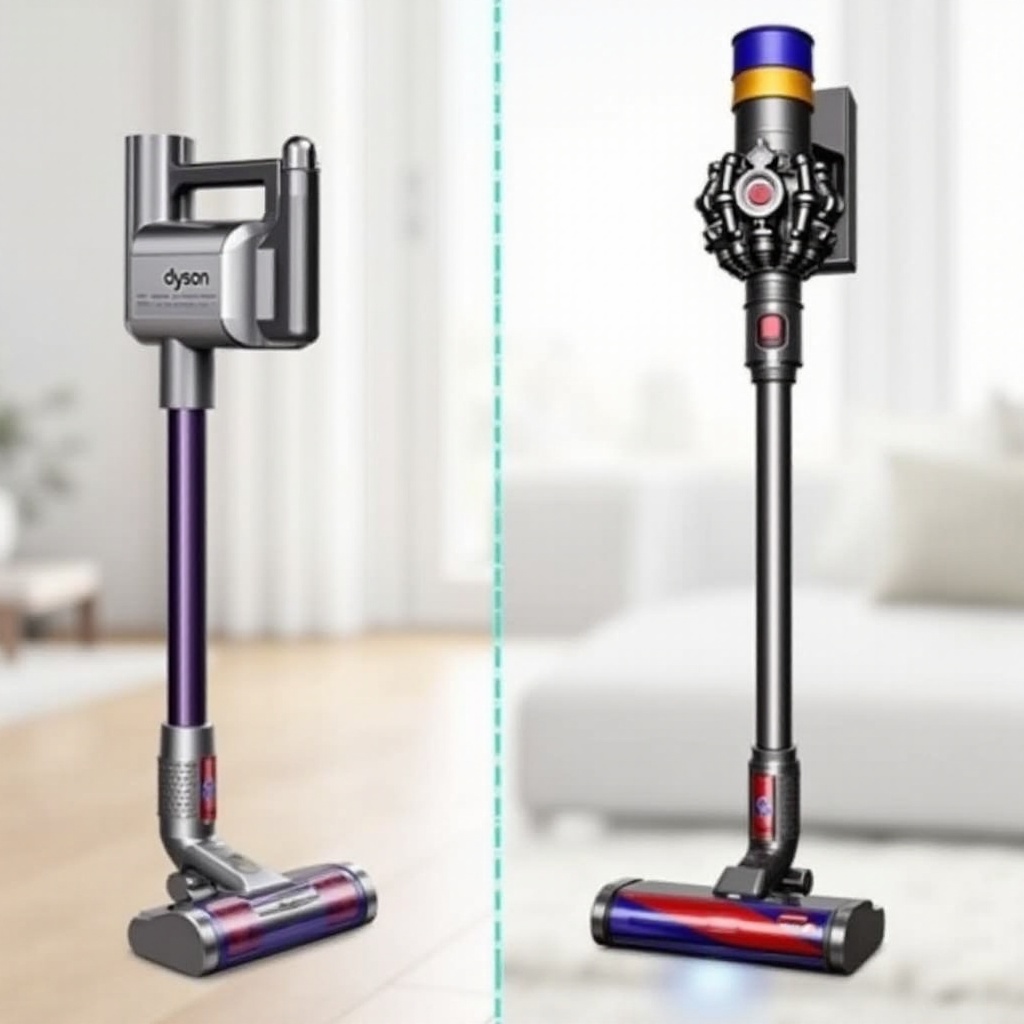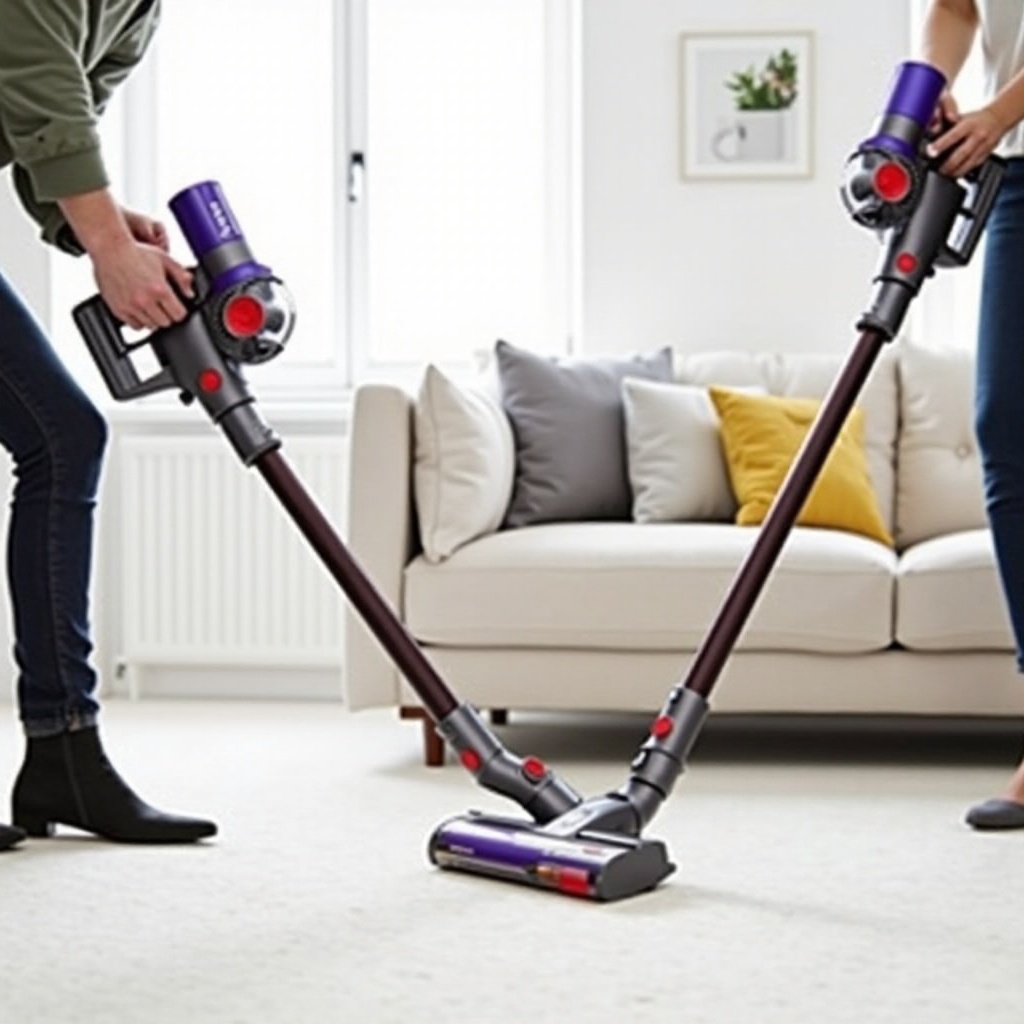Introduction
When choosing a cordless vacuum, Zoker and Dyson are two brands that often come to mind. Both promise to deliver powerful suction, long battery life, and user-friendly features. However, deciding which brand offers the best value and performance can be a challenge. This detailed comparison will dive into key aspects like suction power, battery life, design, performance on different surfaces, ease of use, maintenance, price, and customer reviews. By the end, you will have a clear understanding of how these two cordless vacuums stack up against each other and which might be the best fit for your cleaning needs.

Key Features Comparison
Suction Power and Efficiency
Suction power is crucial for cordless vacuums. Dyson models are known for their exceptional suction, often leading the market with advanced motor technology. Zoker, on the other hand, has been making strides, offering competitive suction power at a more affordable price. While Dyson models may outperform in extreme conditions, Zoker manages to handle everyday messes efficiently.
Battery Life and Charging Time
Battery life and charging speed are pivotal for a seamless cleaning experience. Dyson typically offers 45-60 minutes of runtime on a full charge with models like the V11. Zoker vacuums generally run for about 40-50 minutes. Charging times also vary slightly, with Dyson taking around 3.5 hours and Zoker roughly 4 hours. The slight edge in battery life might make Dyson the preferable choice for larger homes.
Design and Build Quality
Design and build quality impact the user experience and the longevity of the vacuum. Dyson vacuums usually boast sleek, modern designs with robust builds, ensuring durability. Zoker models, while well-made, may not feel as premium but still offer reliable construction and user-friendly designs. Dyson’s innovative features and aesthetic appeal often set it apart in this category, making it a preferred choice for those who appreciate both functionality and style.

Performance on Different Surfaces
Performance on various surfaces is a pivotal aspect when choosing a vacuum.
Hardwood Floors
When it comes to hardwood floors, both Zoker and Dyson vacuums excel. Dyson’s soft roller heads are specifically designed to pick up large debris and fine dust simultaneously without scratching surfaces. Zoker also performs admirably, thanks to its versatile brush heads, though it may not achieve the same precision as Dyson.
Carpets
For carpets, strong suction is essential. Dyson’s higher-end models, like the V15, come equipped with powerful motors and adaptive suction capabilities, making them highly effective on carpets of all depths. Zoker’s vacuums also clean carpets well but may require additional passes to capture deeply embedded dirt.
Tiles and Other Surfaces
On tiles and other surfaces, maneuverability and brush design matter. Dyson’s designs are often tailored to handle various surfaces without loss of suction power, making them exceptionally versatile. Zoker performs well but might struggle slightly with irregular surfaces, a factor worth considering for homes with diverse flooring types.
Ease of Use and Maneuverability
When comparing ease of use and maneuverability, both weight and handling play critical roles.
Weight and Handling
The weight of the vacuum impacts its maneuverability. Dyson cordless vacuums tend to be lightweight and easy to handle. Zoker, while usually slightly heavier, still offers good maneuverability. The ergonomic design of Dyson vacuums makes extended cleaning sessions more comfortable.
Noise Levels
Noise can be a significant consideration. Dyson models typically feature quieter operation compared to Zoker, thanks to advanced acoustic engineering. Zoker vacuums are not excessively loud, but they do not reach the same noise reduction levels as Dyson, which could be essential for noise-sensitive users.
Attachments and Versatility
Both brands offer various attachments for enhanced versatility. Dyson tends to lead with a broader variety of specialized tools, such as mini motorized brushes and soft dusting brushes. Zoker also provides useful attachments, albeit potentially limited in comparison. If attachments are a priority, Dyson might be the better choice.

Maintenance and Durability
Long-term use and maintenance ease are vital factors that may affect your choice.
Filter and Dustbin Maintenance
Maintaining a vacuum is crucial for its longevity and performance. Dyson vacuums usually come with washable filters and easily accessible dustbins, simplifying maintenance. Zoker’s models also feature washable parts but might require more frequent attention to maintain optimal performance.
Long-term Durability
Durability determines how long a vacuum will last. Dyson’s robust build and high-quality materials ensure a longer lifespan, even with intense use. Zoker vacuums, while durable, may not have the same longevity due to less premium build materials. For long-term investment, Dyson often stands out.
Price Comparison and Value for Money
The financial aspect significantly influences purchasing decisions.
Upfront Cost
The upfront cost is often a key deciding factor. Dyson vacuums generally come at a higher price point, reflecting their advanced technology and build quality. Zoker offers a more budget-friendly option while still providing good performance, making it attractive for those on a tighter budget.
Long-term Value and Cost of Ownership
Long-term value considers the cost of maintenance and components. Despite a higher initial cost, Dyson vacuums often prove to be cost-effective in the long run due to their durability and fewer necessary repairs. Zoker’s lower initial cost might see you spending more on replacements and maintenance over time, balancing out the initial savings.
Customer Reviews and Ratings
Customer insights can provide a deeper understanding of real-world performance.
Summary of User Experiences
Customer feedback provides valuable insights. Dyson consistently receives high praise for its powerful performance, ease of use, and innovative features. Zoker users also report satisfaction, particularly highlighting its affordability and efficiency.
Common Praises and Complaints
Common praises for Dyson include its suction power and modern design, though some users find the price point steep. Zoker’s customers appreciate its value for money but sometimes cite concerns over its long-term durability and the need for more frequent maintenance.
Conclusion
Choosing between Zoker and Dyson vacuums comes down to your needs and budget. Dyson offers superior performance, design, and long-term value, making it ideal for those seeking high-end functionality. Zoker provides a budget-friendly alternative that still performs well, suitable for those focused on upfront savings.
Frequently Asked Questions
Which vacuum is better for pet hair, Zoker or Dyson?
Dyson typically handles pet hair better due to its powerful suction and specialized attachments designed to capture difficult hair without tangling.
How long do the batteries last in Zoker and Dyson cordless vacuums?
Dyson batteries generally last 45-60 minutes, while Zoker batteries offer 40-50 minutes of cleaning time per full charge.
Are replacement parts readily available for both Zoker and Dyson?
Yes, replacement parts are readily available for both Zoker and Dyson, although Dyson may offer a wider range of components due to its market prominence.
